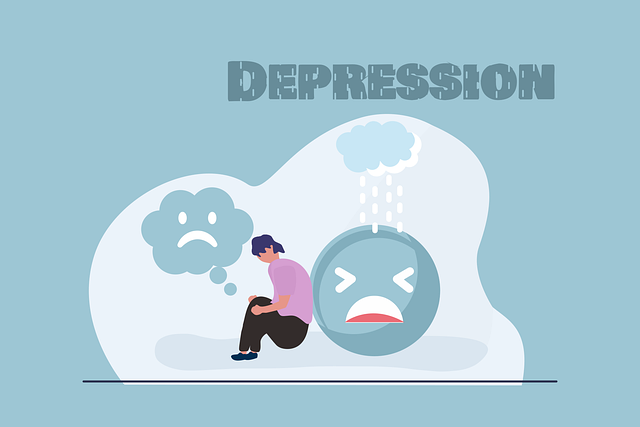Mental health professionals treating conditions like Lafayette Bipolar Disorder Therapy face challenges including burnout and emotional intensity. Effective coping strategies, self-care (e.g., Mental Wellness Journaling), and Emotional Regulation techniques are crucial to mitigate risks. A holistic approach combining advanced training, evidence-based practices (like Mindfulness Meditation), and regular self-care is essential for optimal patient outcomes and preventing professional burnouts. Lafayette Bipolar Disorder Therapy excels through continuous monitoring, adaptability, and integrating coping skills development, fostering a supportive environment for comprehensive mental health care.
Mental health professionals (MHPs) face unique risks daily, with potential hazards escalating during therapy sessions. This article delves into a comprehensive risk assessment framework for MHPs, focusing on strategies tailored to managing complex cases like Lafayette Bipolar Disorder Therapy. Understanding these risks is paramount for delivering effective care while ensuring therapist safety. We explore key considerations, from identifying red flags to implementing mitigation tactics and the ongoing need for monitoring and adaptability in treatment plans.
- Understanding Mental Health Professional Risks
- Assessing Lafayette Bipolar Disorder Therapy Risks
- Implementing Effective Risk Mitigation Strategies
- Continuous Monitoring and Adaptability in Therapy
Understanding Mental Health Professional Risks

Mental health professionals, including therapists and counselors, face unique challenges that can impact their well-being. Understanding these risks is a crucial step in fostering mental wellness. One significant concern is burnout, especially prevalent among healthcare providers due to high-stress work environments. The demanding nature of Lafayette Bipolar Disorder Therapy or other specialized treatments can take a toll on professionals’ emotional resilience over time.
Additionally, the nature of their work often involves intense emotional engagement with clients, which may lead to secondary traumatic stress if not properly managed. Encouraging self-care practices like Mental Wellness Journaling Exercise Guidance and incorporating burnout prevention strategies are essential. Emotional Regulation techniques can help professionals maintain balance, ensuring they are equipped to provide effective guidance without compromising their own mental health.
Assessing Lafayette Bipolar Disorder Therapy Risks

When assessing risks for Lafayette Bipolar Disorder Therapy, mental health professionals must consider the intricate interplay between the disorder’s symptoms and the therapeutic process. Bipolar disorder, characterized by intense mood swings, can significantly impact a patient’s ability to engage in therapy, making risk assessment crucial for effective treatment planning. Professionals should evaluate the potential for emotional intensity during sessions, as patients with bipolar disorder may experience heightened anxiety, depression, or manic episodes, which could affect their vulnerability and coping mechanisms.
Self-Awareness Exercises and Compassion Cultivation Practices can be integral components of mitigating risks in Lafayette Bipolar Disorder Therapy. Encouraging patients to develop inner strength through self-reflection and mindfulness techniques allows them to better manage their symptoms. Additionally, fostering compassion towards oneself and others during therapy sessions can help individuals navigate the emotional challenges associated with bipolar disorder, ultimately enhancing their therapeutic experience and outcomes.
Implementing Effective Risk Mitigation Strategies

In implementing effective risk mitigation strategies for mental health professionals, a holistic approach that combines advanced training and practical tools is essential. For practitioners dealing with conditions like Lafayette Bipolar Disorder Therapy, this involves staying abreast of the latest research in Mental Health Awareness and integrating evidence-based practices into their treatment methods. Mindfulness Meditation has been shown to significantly enhance patient outcomes by promoting inner strength development, thereby reducing risks associated with relapses or exacerbations of symptoms.
Professionals should also prioritize self-care to prevent burnout, which is a significant risk factor for errors in judgment and practice. Regular engagement in activities that foster Mental Health Awareness, such as Mindfulness Meditation, allows practitioners to cultivate their own inner strength, making them better equipped to support their clients. This two-fold approach—focusing on patient care while maintaining personal well-being—is crucial in navigating the complex landscape of mental health services and ensuring optimal patient outcomes.
Continuous Monitoring and Adaptability in Therapy

In the dynamic field of mental health therapy, continuous monitoring and adaptability are cornerstones of effective treatment. Lafayette Bipolar Disorder Therapy, for instance, thrives on this principle by regularly assessing patient progress and adjusting therapeutic approaches accordingly. This real-time evaluation ensures that interventions remain relevant and responsive to evolving needs, particularly when dealing with complex conditions like bipolar disorder. By integrating coping skills development as a key component, therapists empower individuals to navigate life’s challenges more effectively.
Emotional intelligence plays a pivotal role in this process, enabling mental health professionals to recognize subtle shifts in their clients’ emotional states. This heightened awareness fosters a supportive environment where patients feel understood and encouraged to share their experiences openly. Through risk management planning, therapists can anticipate potential triggers and implement proactive strategies, thereby enhancing the overall safety and efficacy of therapy.
Mental health professionals, like those providing Lafayette Bipolar Disorder Therapy, face unique risks that require careful assessment and proactive management. By understanding these risks, implementing effective mitigation strategies, and maintaining continuous monitoring, therapists can ensure a safer and more beneficial therapeutic environment for both themselves and their clients. This holistic approach to risk assessment is crucial in enhancing patient outcomes and fostering a resilient mental health practice.












